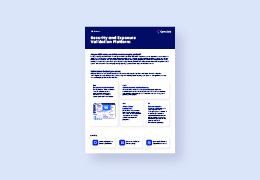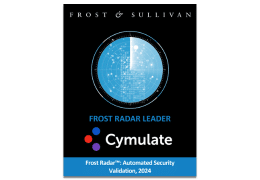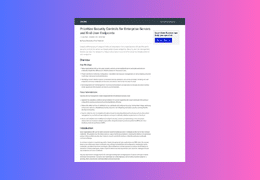LockBit is a Ransomware as a Service (RaaS) operation that has been active since 2019 (previously known as “ABCD”).
It commonly leverages the double extortion technique, employing tools such as StealBit, WinSCP, and cloud-based backup solutions for data exfiltration prior to deploying the ransomware.
Like most ransomware groups, LockBit’s post-exploitation tool of choice is Cobalt Strike.
During a recent investigation, SentinelOne discovered an interesting technique used by LockBit Ransomware Group, or perhaps an affiliate, to load a Cobalt Strike Beacon Reflective Loader.
In this particular case, LockBit managed to side-load Cobalt Strike Beacon through a signed VMware xfer logs command line utility.
Since their initial publication, they have identified a connection with an affiliate Microsoft tracks as DEV-0401.
A switch to LockBit represents a notable departure in DEV-0401’s previously observed TTPs.
Side-loading is a DLL-hijacking technique used to trick a benign process into loading and executing a malicious DLL by placing the DLL alongside the process’ corresponding EXE, taking advantage of the DLL search order.
In this instance, the threat actor used PowerShell to download the VMware xfer logs utility along with a malicious DLL, and a .log file containing an encrypted Cobalt Strike Reflective Loader.
The VMware utility was then executed via cmd.exe, passing control flow to the malicious DLL.
The DLL then proceeded to evade defenses by removing EDR/EPP’s userland hooks, as well as bypassing both Event Tracing for Windows (ETW) and Antimalware Scan Interface (AMSI).
The .log file was then loaded in memory and decrypted via RC4, revealing a Cobalt Strike Beacon Reflective Loader.
Lastly, a user-mode Asynchronous Procedure Call (APC) is queued, which is used to pass control flow to the decrypted Beacon.





